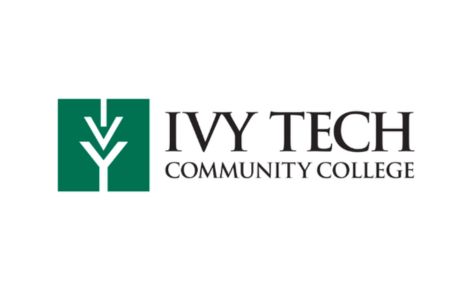Ivy Tech Launches Hancock County Manufacturing Skills Academy

26 Mar 2025
News
Ivy Tech Community College in Anderson is launching a program to provide hands-on training for employees at Hancock County manufacturers.
The three-level course will train workers in the operation and programming of programmable logic controllers (PLCs).
Hancock County Manufacturing Skills Academy
- Dates: May 12-16 and August 4-7, 2025
- Time: 8 a.m.-5 p.m. EST
- Instructional Method: In-person, hands-on lab training
- Length: 9 days
- Location: Ivy Tech Community College, Anderson
- Cost: $2,125 per person
- Industry Certifications: SACA Programmable Controller Systems 1: Silver & Gold Certifications
Sign up for the Academy here.
Bootcamp Description
The PLC Bootcamp is a three-level course designed to provide hands-on training in the operation and programming of programmable logic controllers (PLCs). The bootcamp will begin with a brief overview of basic electrical skills. Participants will focus on electrical safety, circuit fundamentals, and troubleshooting techniques using industry-standard tools. PLC Level 1 covers basic PLC components, software, logic, troubleshooting, and ladder logic programming. PLC Level 2 builds on these skills, focusing on advanced topics like networking, HMI programming, analog signals, variable speed drives, and PLC sequencing, with the opportunity for certification through the Smart Automation Certification Alliance (SACA).
Basic Electrical Skills
Course Content
This 2-day intensive course equips industry professionals with essential electrical knowledge and hands- on skills to prepare for a Programmable Logic Controllers (PLC) bootcamp. Participants will focus on electrical safety, circuit fundamentals, and troubleshooting techniques using industry-standard tools.
Learning Objectives
- Demonstrate proper safety precautions related to equipment.
- Define the following terms: voltage, resistance, current amperage, direct current, alternating current and power supply.
- Identify electrical components and form a schematic diagram.
- Calculate voltage, current and resistance in series, parallel, and series-parallel circuits using Ohm’s Law.
- Perform voltage, current and resistance measurements using the proper measurement devices.
- Demonstrate ability to read and interpret technical documents.
- Identify basic principles and characteristics of transformers, resistors, capacitors and diodes.
- Calculate values for AC and DC resistive, inductive, and capacitive components.
Programmable Logic Controllers Level 1
Course Content
This training is for the basic operation and programming of programmable logic controllers. Students will familiarize themselves with PLC components, software, basic logic, and operating nuances. Programmable logic controller technology and software will be reviewed, including programming software, operator interfaces, networking, basic programming, HMI (human-machine interface) networking and operation, and troubleshooting.
***Prerequisites: Basic industrial technology knowledge.
Learning Objectives
Upon successful completion of this course, the student will be able to:
- Review basic computer operations and safety protocols.
- Describe the common parts of programmable controllers.Identify the common parts of programmable controllers.
- Navigate PLC-specific software.
- Configure networked components.
- Describe logic circuits.
- Interpret basic ladder logic diagrams.
- Create basic ladder logic diagrams.
- Install a simple programmable controller system.
- Troubleshoot a programmable controller system.
- Solve application problems using programmable logic controller processors.
Programmable Logic Controllers Level 2
Course Content
This course is the second level of training in PLC and Controls. It is designed to accommodate content that can be adapted for various PLC brands, including Siemens, Allen Bradley/Rockwell, Mitsubishi, and others. Building on the foundational skills taught in the Level 1 PLC course, this course delves deeper into networking topics, including network driver configuration, data transfer, and point-to-point communication. Additionally, it introduces learners to the basics and applications of Human-Machine Interfaces (HMIs), analog inputs and outputs, variable speed drives, sequencers, and advanced programming through project-based learning. Students will also have the opportunity to take a certification assessment through the Smart Automation Certification Alliance (SACA).
Learning Objectives
Upon successful completion of this course, the student will be able to:
- Configure networked components.
- Design/develop basic HMI programs.
- Install HMI programs.
- Configure analog signals to/from the PLC.
- Develop PLC programs utilizing analog signals.
- Develop PLC programs using Sequencers.
- Create advanced ladder logic diagrams.
- Revise advanced ladder logic diagrams.
- Recall fundamental content to meet/exceed the cut-score for the SACA (Smart Automation Certification Alliance) SACA C-207 Programmable Controller Systems 1- Silver Certification.
- Demonstrate skills to obtain the SACA C-207 Programmable Controller Systems 1- Gold Certification.
*Training conducted on Allen Bradley PLC trainers
Questions? Contact Brooke LeMay, Employer Consultant with Ivy+ Career Link at tlemay1@ivytech.edu.
More Topics

Ports: Key to Nation’s Economy
Mar 25 2025



